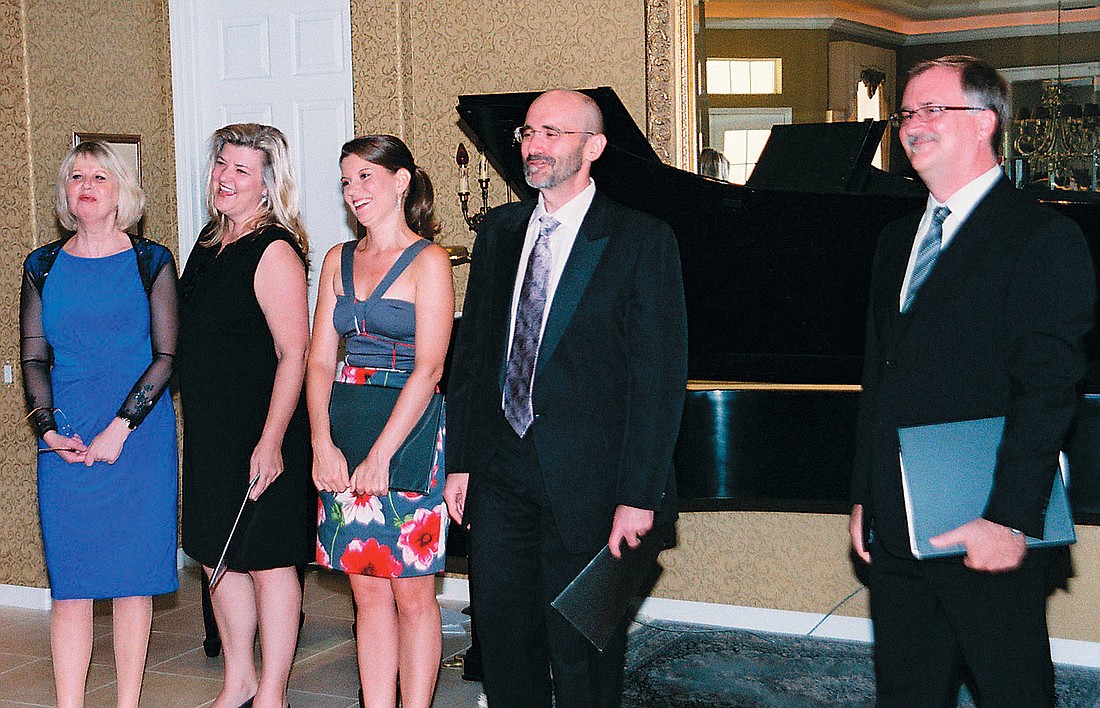- November 28, 2024
-
-
Loading

Loading

Music-lovers of the 19th century had neither recordings nor radio but they had the right idea, as does the Artist Series of Sarasota, and, to start its new music season, it invited to one of Sarasota’s most marvelous homes, a group of musical friends for good food and entertainment — returning chamber music to the “chamber” in which it’s meant to be heard.
That’s how we attended the recent “Schumanniade,” a concert of vocal chamber music by the great Robert Schumann, performed by a quartet of charming singers with pianist Therese Lindquist.
From the opening and closing ensemble pieces excerpted from the “Spanisches Liederspiel” (Spanish Songbook), through well-chosen bits of individual cycles by both Robert and Clara Schumann, it was a time of stunning music-making.
In this setting, great vocalism is less important than musicianship and intellect. And all the musicians, excellent performers each, stepped us back two centuries to a time we envy for its tranquility, ambience and gentility.
The standout singer among the four was mezzo Amanda Crider whose way with a trio of songs by the underestimated but estimable Clara Wieck Schumann showed both personality and vocal magnetism.
Tenor Robert B. Dundas gave a musical voice to “Waldesgespraech,” “Die Stille” and the beautiful and the well-known “Mondnacht” from the Opus 39 set of “Liederkreis.” Soprano Esther Jane Hardenbergh chose three songs from “Frauenliebe und Leben” (A Woman’s Life and Love), one of the greatest cycles of illustrious poetry set to music there is, and performed them with charm and pathos. And the two songs performed by baritone John Thomasson — “Aus den hebrischen Gesaengen,” a riveting, chromatic and rarely heard work with a gorgeous text by Lord Byron, and “Requiem,” based on a Roman Catholic poem — were gems in this beautiful setting.
Vocal chamber music is an exalted musical experience because it combines great music with distinguished poetry. In this setting it was, simply, sublime.
— June LeBell